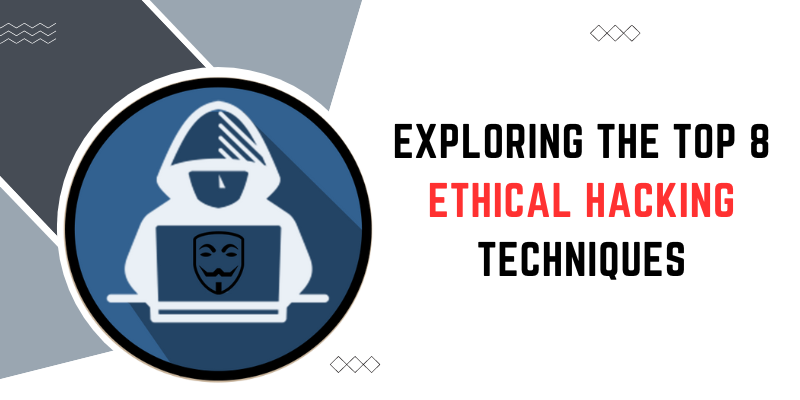
Introduction:
Ethical hacking, often known as penetration testing or white-hat hacking, is a critical practice in cybersecurity. It entails authorized professionals utilizing their skills and knowledge to find flaws in computer systems, networks, and applications. Ethical hackers assist organizations in improving their security defenses and protecting their digital assets by adopting the perspective of a possible attacker. This post will examine Exploring the Top 8 Ethical Hacking Techniques. Enrolling in Ethical Hacking Training In Pondicherry at FITA Academy helps to understand the ethical and spot the legal issues during coding in Ethical Hacking.
Top 8 Ethical Hacking Techniques
Vulnerability Scanning:
Vulnerability scanning is a technique for detecting flaws in systems and networks. Ethical hackers scan for known vulnerabilities, software versions, and misconfigurations using specialized tools. This procedure assists organizations in identifying security flaws and prioritizing patching and protecting their systems.
Password Cracking:
Passwords are often the most vulnerable link in an organization’s security. Ethical hackers use a variety of approaches to crack passwords and assess their strength, such as brute-forcing, dictionary attacks, and rainbow table attacks. Organizations may enforce stricter password standards and educate users about secure password practices by identifying weak passwords. Enrol in the Ethical Hacking Course In Hyderabad to enhance your skills, concepts, and knowledge.
Social Engineering:
Social engineering is a strategy for gaining unauthorized access by exploiting human vulnerabilities. Ethical hackers deploy phishing emails, phone calls, and physical impersonation to assess employees’ awareness and susceptibility to manipulation. Organizations can educate employees, raise awareness about potential threats, and implement measures to reduce the risk of social engineering attacks by completing social engineering assessments.
Wireless Network Hacking:
With the expanding usage of wireless networks, security has become increasingly important. Ethical hackers use tactics such as sniffing, cracking encryption and exploiting weak setups to get unauthorized access to wireless networks. Organizations can increase security procedures, establish robust encryption techniques, and secure sensitive data by identifying wireless network vulnerabilities.
Web Application Testing:
Web applications are common targets for hackers. Ethical hackers evaluate the security of web applications by discovering vulnerabilities such as SQL injection, cross-site scripting (XSS), and cross-site request forgery (CSRF). Organizations may secure their applications and the data they handle by doing extensive web application testing. Join an Ethical Hacking Course In Madurai to learn and also gain more information about ethical hacking.
Network Traffic Analysis:
Ethical hackers analyze network traffic to uncover potential security flaws. They can detect malicious activities, unauthorized access attempts, and data exfiltration by studying packet captures, logs, and network devices. Network traffic analysis assists organizations in quickly detecting and responding to security incidents, ensuring the integrity and confidentiality of their network connections.
Physical Security Testing:
Ethical hackers conduct physical security assessments to evaluate an organization’s physical defences. They tested access controls, surveillance systems, and the organization’s resistance to physical attacks. Organizations can enhance their overall security posture and protect their physical assets and infrastructure by identifying gaps in physical security procedures.
Red Team Exercises:
Red team exercises require a thorough examination of an organization’s entire security. Ethical hackers replicate real-world attacks to identify weaknesses across multiple systems and departments. This comprehensive approach assists organizations in understanding their security gaps, improving incident response skills, and developing successful defence strategies. The Ethical Hacking Course In Coimbatore seeks to teach students how to plan a network vulnerability assessment and penetration test.
